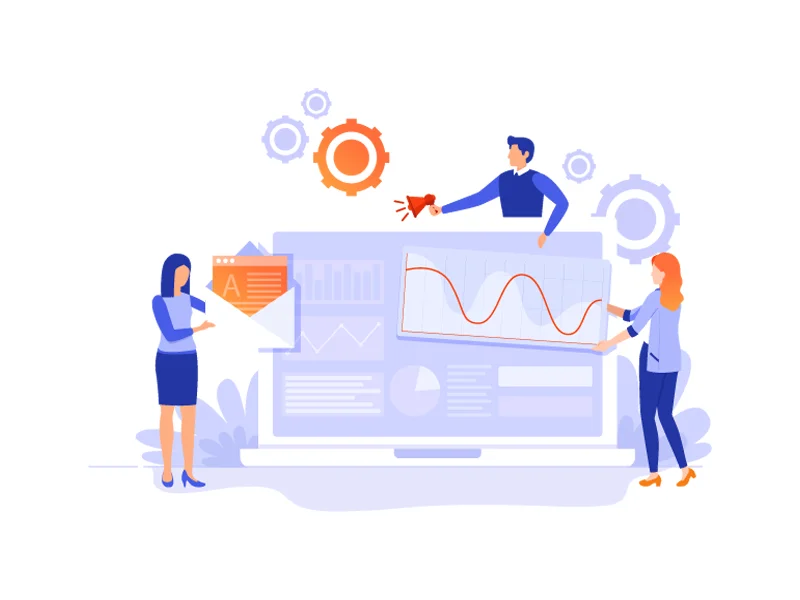

Sunday 5th March 2023
What is a Web Crawler? Everything you need to know!
Imagine a tiny, tireless robot exploring the vast and ever-expanding landscape of the World Wide Web, seeking out hidden corners and secret pathways in search of valuable data and information. This web crawler could easily crawl websites, a digital adventurer on a mission to map and index the digital world. With lightning-fast reflexes and a keen eye for detailed data, web crawlers scurry from link to link, carefully collecting data and insights. It scales to different websites and delves deep into the depths of databases, uncovering hidden information that might otherwise remain unseen. As it does its work, the crawler web leaves a trail of breadcrumbs in its wake, paving the way for other digital travelers to follow. Its tireless efforts help create a vast and interconnected web of knowledge, enabling us to quickly search and discover the information we need. So, the next time you use a search engine to find answers to your questions, remember that behind the scenes, a brave and relentless web crawler is hard at work, scouring the digital landscape for the answers you seek. In this blog, we will understand what a web crawler is, how they perform crawling the web and the importance of crawler webs. What is a Web Crawler? A web crawler, a spider or spider bot, is a software program that systematically browses the Internet, typically for web indexing. Web crawlers use algorithms to automatically search for and follow links on web pages, retrieving information and data along the way. This information is then used to build an index of web pages, which is used to provide search engine results or other types of data analysis. Web crawlers often work for search engines like Google, Yahoo, and Bing to index website content, allowing users to quickly and easily search for relevant information. Researchers and marketers can also use them, and other individuals or organizations gather data from the web for various purposes, such as market research, competitive analysis, or content aggregation. What is Search Indexing? Search indexing is the process of analyzing the contents of web pages and storing that information in a searchable index, which search engines can use to retrieve relevant results for a user's search query quickly. When a search engine like Google crawls the web, it collects information about the content on each page it visits, including the words and phrases used, the structure of the page, and the links to and from the page. This information is then analyzed and indexed, organized into a searchable database that the search engine's algorithms can quickly search. Search indexing allows search engines to provide fast, accurate results for a user's search query. When a user types in a search menu bar, the search engine quickly scans its index to find pages relevant to the question, using a variety of ranking factors to know the order in which the results are displayed. Effective search indexing relies on several factors, including the quality of the data collected by the web crawler, the accuracy of the indexing algorithms used by the search engine, and the relevance of the search results returned to the user. By constantly refining and improving these factors, search engines can provide increasingly accurate and relevant results to their users, making it easier for them to search for any information they need on the web. How does a Web Crawler work? Crawler's web works by systematically browsing and analyzing the Internet, visiting web pages, and indexing their contents. Here are the basic steps a web crawler follows:- Start with a seed URL: A web crawler typically starts with a seed URL, a specific web page it will visit first. From there, it follows links to other pages on the web.
- Follow links: Then, they follow links on the web pages they visit, collecting URLs to other pages they will see later. They typically prioritize links based on rules, such as the content's relevance, the page's popularity, or the content's freshness.
- Retrieve web pages: When the web crawler finds a new URL to visit, it retrieves the corresponding web page using HTTP or HTTPS protocols. It then parses the HTML code to extract information about the page, including the text content, images, links, and other metadata.
- Store data: The data collected by the web crawler is typically stored in a database, which can be used to index the contents of the web pages and make them searchable. The crawler may also store information about the page, such as the date it was last updated or the author of the content.
- Repeat the process: The web crawler repeats this process, following links to new pages, retrieving their contents, and storing the data it collects. It continues to do this until it has visited all the pages it can find or until it reaches a predetermined limit.
- Indexing: Search engines use web crawlers to index web pages' contents, enabling them to provide relevant results to users based on their search queries. If a search engine does not index a web page, it will not appear in search results, which can harm its visibility and traffic.
- Crawling frequency: The frequency web crawlers visit and index a website can affect search engine rankings. Websites crawled more frequently are more likely to have fresh, up-to-date content, which can improve their rankings. Conversely, websites crawled infrequently may be penalized by search engines, as they may be seen as less relevant or valuable.
- Duplicate content: Web crawlers can identify and penalize websites with duplicate or low-quality content. If a website contains large amounts of the same content, it may be penalized by search engines, which can cause its search rankings to drop.
- Backlinks: It can also analyze the backlinks to a website, which can affect its search engine rankings. Backlinks from high-quality, authoritative websites can improve a website's search engine rankings, while backlinks from low-quality or spammy websites can negatively impact.

